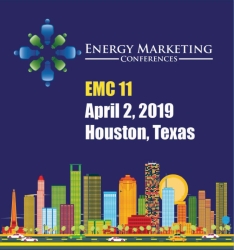|
|
|
|
|
Groups Petition Maryland PSC To Require Utilities To Offer Consolidated Billing To Community Solar Providers
The following story is brought free of charge to readers by EC Infosystems, the exclusive EDI provider of EnergyChoiceMatters.com
The Climate Access Fund (CAF) and Solar United Neighbors of Maryland have petitioned the Maryland Public Service Commission to direct the utilities that are participating in Maryland’s community solar pilot to offer consolidated billing to Subscriber Organizations or Solar Developers, similar to that provided to retail electricity suppliers by Code of Maryland Regulations (COMAR) 20.53.05.03.
"[R]equiring these utilities to provide consolidated billing will enhance the economic viability of low-income community solar projects," the petitioners said
In the alternative, the petitioners requested that the utilities be directed to provide consolidated billing to low- and moderate-income (LMI) community solar projects in light of the financial hardship created by separate billing for these projects.
"Given economies of scale, the economics of rooftop community solar projects (usually less than 500 kW) are not as favorable as the economics of 2 MW ground-mounted projects. As a result, few solar developers have chosen to enter this market to date. Given the political challenges the community solar market is facing with the siting of large solar arrays in suburban and rural settings, however, the success of the Maryland community solar pilot program may depend upon identifying ways to improve the economics of rooftop projects," the petitioners said
"Without consolidated billing, community solar projects must outsource the billing function, adding to the overall project cost and reducing the overall savings to LMI customers. Given the narrow financial margins inherent in smaller-scale rooftop projects, the absence of consolidated billing means that it is much more difficult for these projects to save LMI customers enough money on their electricity bills to incentivize subscriptions. While no LMI projects are yet operational, it is too early to definitively say what degree of savings will be required to incentivize LMI households to subscribe to community solar, but CAF was advised by the Fuel Fund of Maryland that a minimum of 20% savings is likely needed. Because utilities already have consolidated billing systems in place, the cost of adding community solar subscribers should be minimal," the petitioners said
"In addition to the added cost burden of dual billing, the requirement that community solar subscribers must pay two separate electricity bills – one to the community solar supplier and one to the utility – may act as a disincentive for potential subscribers. Since deregulation, other Maryland residents who have chosen a third-party supplier have not been required to pay two separate electricity bills; it is unclear why community solar is treated or should be treated any differently. The lack of consolidated billing constitutes an anti-competitive barrier for the community solar market – particularly the LMI community solar market," the petitioners said
ADVERTISEMENT Copyright 2010-16 Energy Choice Matters. If you wish to share this story, please
email or post the website link; unauthorized copying, retransmission, or republication
prohibited.
Groups Says Allowing Only Suppliers To Use UCB Is Anti-Competitive
March 21, 2019
Email This Story
Copyright 2010-19 EnergyChoiceMatters.com
Reporting by Paul Ring • ring@energychoicematters.com
NEW Jobs on RetailEnergyJobs.com:
• NEW! -- Account Manager, Energy Choice
• NEW! -- Business Development Manager
• NEW! -- Chief Operating Officer -- Retail Supplier
• NEW! -- Retail Energy Channel Manager -- Retail Supplier
• Energy Sales Broker
|
|
|
|









